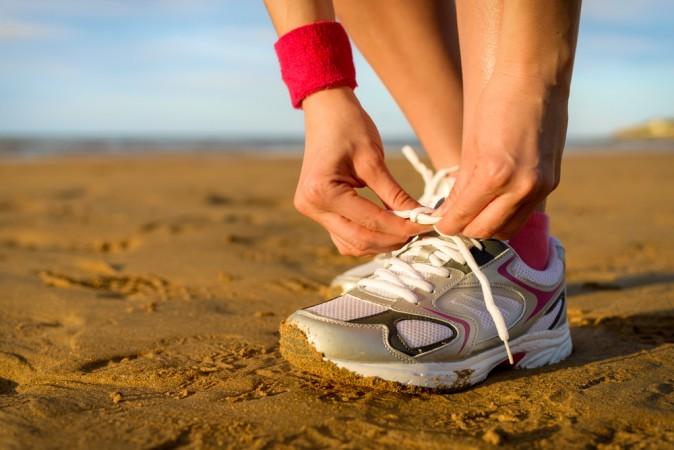Running is a form of exercise that people of all ages and abilities can enjoy. The great things about running are that its free, it can be a group or solo activity, it’s a stress-reliever, it’s rewarding, it’s good for your health, you can go at your own pace, and the list goes on.
I started running this past June when I ran my first 10-kilometer race. One thing that happened during training was that I started to think a lot more about the food I was eating. I began looking at it more like fuel for my body rather than just food.
I consider myself to be a fairly healthy person, but it wasn’t until I had to consciously think about what I was going to eat before a run and after a run that I started to take a close look at what I was eating.
Running two or three miles is one thing, but once you start to run more than six or seven miles, you really need to rely on those healthy nutrients in your body to give you the energy and fuel to keep going.
Our bodies rely on carbohydrates, stored as glycogen, for fuel during exercise. Once we run out of carbs, our bodies start to burn fat. This transition from glycogen-burning to fat-burning is what many runners call “hitting the wall.” You feel tired, your muscles ache, and you just want to quit.
This is why it’s important before a long run or race to make sure your body has stored enough carbs, which is how the term carb-loading came about.
The day before a long run, fill up on healthy portions of carbohydrates with a delicious pasta dinner. To make sure their glycogen storage is topped off, some runners even gradually increase their carb intake up to a week before the race.
The morning of your race, be sure to eat a light, carb-filled breakfast about three hours before the race starts. You'll want to allow yourself plenty of time for digestion. Stick with what you have been training with, the foods that you know work.
Some simple breakfast ideas that runners swear by are a banana, (fruit loaded with potassium that can help prevent muscle cramping), a bagel, bowl of oatmeal, or a slice or two of whole wheat bread topped with peanut butter. This combo is a great mixture of carbs and protein to kick-start your race day.
Don’t forget to hydrate yourself leading up to race day. You‘ll want to make sure your body is completely hydrated before you start your run. And as much as you’ll want to grab a cup of coffee to wake up, try to avoid it because it may cause stomach issues and will dehydrate you.
To avoid hitting the wall during your run, you‘ll need to make sure you’re stocked with some carbs for refueling, which you’ll need to do every 45 minutes to an hour. There are tons of gels and sports beans on the market for long-distance runners, but you can easily use natural alternatives as well, like honey packets or dried fruit like apricots or raisins.
Remember to bring along a water bottle and hydrate yourself. If you’re running a race, there will be water stations located along the way.
Once the run is over and you’ve crossed the finish line, your nutrition plan hasn’t stopped yet. Your body is going to need to recover, and that’s where protein comes into play—it helps repair and rebuild muscles. Right after a race, you'll often notice bagels at the finish line. These will help you refuel your glycogen storage, but try to top them off with some peanut butter for added protein.
Plan a post-run meal filled with high-protein foods, whether it be an egg breakfast (one egg has 10 percent of daily protein, plus amino acids, which will help with muscle repair), a cup of low-fat Greek yogurt like Olympus Greek Yogurt, or a salmon dinner, which is a great lean source of protein.
The best post-race drinks are chocolate milk, which has the perfect balance of carbs and protein to aid in muscle recovery, and coconut water, like Vita Coco, which is high in potassium.
Everyone is different and will digest foods differently. While training, it’s best to find what works for you and then stick with it. Don’t change things up just before race day.
Eco18 is a collective of creative-writing individuals from different backgrounds with a common goal—to live a healthier, more natural lifestyle. Their combined expertise, humor, and opinions explore green and sustainable in a practical, fun way. www.eco18.com
Image of woman tying laces via Shutterstock





